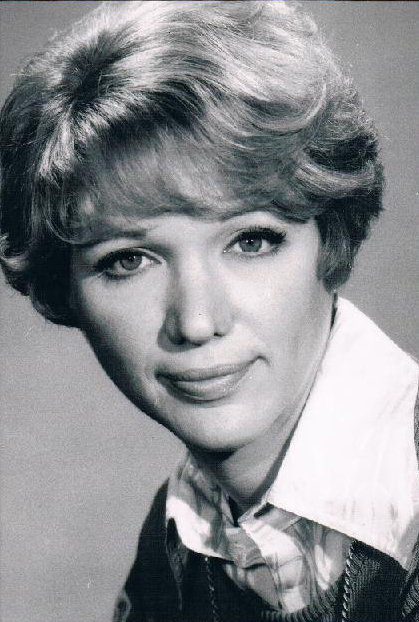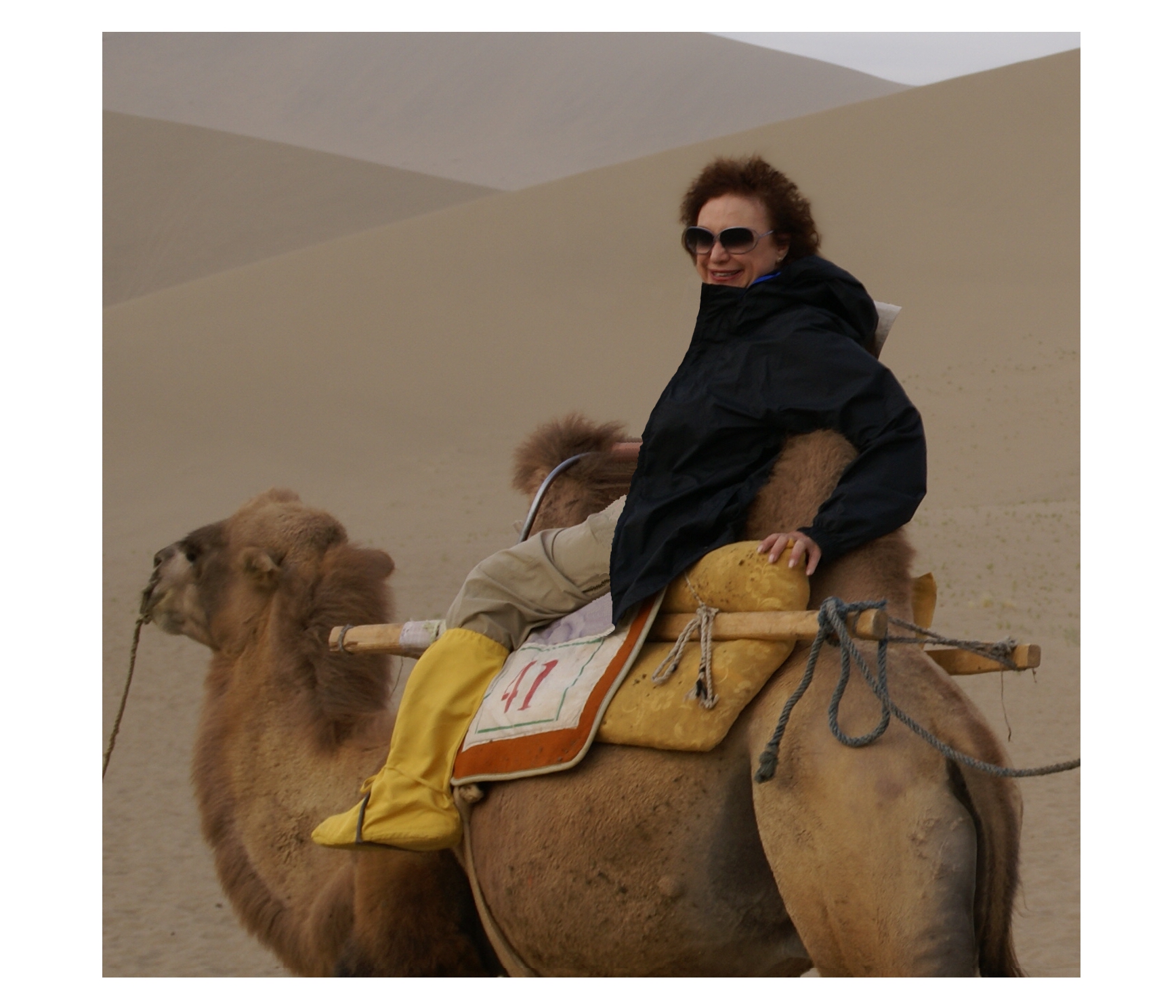The First Woman Was Dissed
 Saturday, March 26, 2011 at 10:16PM
Saturday, March 26, 2011 at 10:16PM This piece has special relevence for me in light of the recent passing of Geraldine Ferraro, the first woman on a major presedential ticket.
Recently I got a call from an old college friend. He is doing a play about the first women in television news, and he wanted to know my experiences. A media expert told me not long ago that the topic is ten years too late, that nobody cares anymore. Well, with the hope that people will care enough to attend his play, I started reminiscing.
We have to plunge back into the mid-sixties, when women in TV news could be counted on two fingers. I remember Pauline Fredrick’s at the U.N. and Nancy Dickerson, both on the networks, and one woman who was in L.A. at local station. Dickerson was quoted at the time saying, “…a woman is still associated with non-thinking. The profession is riddled with prejudice.” Local television newswomen didn’t exist, and women anchors? You’d be laughed out of town. Some of the myths: People wouldn’t take the news from a woman—we lacked credibility. Or, women were too “soft,” or “frail” to go on the street and cover hard news stories.
So, with the audacity of youth, I graduated college as a journalism major (with honors yet –I thought I was really qualified ) specializing in radio-tv , and I wrote letters to news directors all over the country. And, giving credit where it’s due, my professors did not discourage me (watch these “dis” words—they come up in a minute). The braver guys wrote back. Every one said they did not employ women. Of all the things I collected over the years, I wish I still had those letters. Having no feeling for history, I tossed them in DISgust.
But I remember the best. One news director said they had no members of the “DIStaff” side. I had never heard that word before, which, incidentally, refers to the maternal side of the family (see Webster’s). “DIStaff.” DISappear. DIScount. DIScredit. DIStrust. DISturb. DIStaste. DISparage. DISappoint. DISease. DIScouraging, huh? That was us women, the DISsed. But I was not DISsuaded. (I’ll stop now).
I did get one interview. It was an eye-opener and for me and a bit upsetting. A news director, who was also the anchor man, flew me to his midsized Midwestern market for an interview. He was a friend of my college advisor and reputed to be a fine man. Because of logistics, I had to stay overnight, so he took me out to dinner. He was a distinguished grey haired gentleman, or so I thought. After several scotches, he started to tell me reporting exploits that included some of the raunchiest stories I have heard to this day. I was secretly appalled, but inexperienced enough not to know how to say “when.” And I wanted to be sophisticated and JUST AS GOOD AS A MAN –a shibboleth for many “first women.” Then, when he escorted me back to my hotel, he made a pass at me. By that time I had screwed up my courage and rebuffed him as nicely as possible. Needless to say, I didn’t get the job. I was pretty young for this experience the first time out. So, there could be a casting couch in the newsroom, in case you wondered.
 At NBC News Los Angeles, mid 1970'sAnyway, I decided if no one wanted to hire me now, I’d just get another degree, and then I’d be too qualified to be turned away. It’s amazing how naively determined we can be when we are young. Scientists say that the brain, especially the areas of judgment, is not fully developed until the early to mid-twenties. Maybe that’s why youth will take chances, plunge ahead with the conviction that their idea will not fail. And they do come up with new frontiers like Apple, Microsoft, Facebook. When we’re young we don’t know the world’s pitfalls because we’ve never experienced them. We haven’t had time to be beaten down or scarred by failure. I don’t think it’s arrogance. We simply believe we can get what we want by sheer will. I was absolutely convinced, despite all the documentation to the contrary, that I would get hired. I’d JUST BE BETTER THAN ANYONE ELSE. That’s another one of those “first women” make-beliefs.
At NBC News Los Angeles, mid 1970'sAnyway, I decided if no one wanted to hire me now, I’d just get another degree, and then I’d be too qualified to be turned away. It’s amazing how naively determined we can be when we are young. Scientists say that the brain, especially the areas of judgment, is not fully developed until the early to mid-twenties. Maybe that’s why youth will take chances, plunge ahead with the conviction that their idea will not fail. And they do come up with new frontiers like Apple, Microsoft, Facebook. When we’re young we don’t know the world’s pitfalls because we’ve never experienced them. We haven’t had time to be beaten down or scarred by failure. I don’t think it’s arrogance. We simply believe we can get what we want by sheer will. I was absolutely convinced, despite all the documentation to the contrary, that I would get hired. I’d JUST BE BETTER THAN ANYONE ELSE. That’s another one of those “first women” make-beliefs.
So I got my master’s degree and sent out more letters. I did get a little help from Betty Freidan, who about that time published her groundbreaking book, The Feminine Mystique, which gave impetus to the fledgling women’s movement. Suddenly, I was offered TWO jobs. In such a short amount of time, the world had turned. But progress for women in news was slow.
My first position was in Sacramento anchoring the noon news. I have to congratulate the station for being progressive, but they put me on at noon figuring women were home during the day, and I’d attract that audience. Nobody was going to take a chance on a nighttime anchor slot. I also began to learn the ropes of street reporting.
After a year, I became the first woman hired at the CBS station in Minneapolis, where I had applied the first time around when the sports guy doubled as the news director. By now, they had a journalist in the head job. TV news was also evolving during those years, and bonefide local news departments were just beginning to develop. I found out that one reason I wasn’t hired initially was because the sports man was afraid a woman would CRY in the newsroom. I thought that was really silly, but prejudice abounded. Still, I always made it a point to never cry in a newsroom, even at a sad story. No emotions. Just the facts, ma’am.
At one station the general manager, a very nice, well-groomed gentleman, took me aside one day, and told me I should understand that I may have a hard time finding suitable relationships because many men would be intimidated by my professional accomplishments and intelligence. It was obviously a backhanded compliment, but I never figured out why he felt the need to tell me that, except for some misdirected “fatherly” advice. It was another indication of how so many men regarded women who broke the sex barrier. They really were confused about how to fit us into a world where we never existed before.
As it turned out, I did meet one viewer at a party who said he liked my work. In April we will have been married 34 years. Of course, he was intelligent.
There were no sexual harassment laws during my time, and fielding passes could be challenging, especially if the person held a position of power over you. This happened to me a couple times, and I had to use my own wits to figure out how to handle it. Today when that stuff occurs women can head right to Human Resources, and the companies know that.
The people I found challenging were occasional cameramen and some film editors. They tended to think of themselves as jocks and didn’t want to be seen with a woman reporter or to take directions from one. One cameraman, I was told, kept a revolver in his glove compartment, and I’m sure there were others who tended to be “cowboys.” As my career progressed and I was doing more full–length feature reporting for my live newscast slots, this became more of a problem. These guys didn’t want to shoot “soft” news, especially with a woman. I figured they probably got teased by colleagues from other stations who hadn’t yet had to tangle with us. Things were so bad with one cameraman, that the station, to its credit, actually barred him from working there anymore. But there were many very fine cameramen and editors who were helpful and we successfully worked together.
Surprisingly, the most troublesome people tended to be other women. As a few more were hired, I found some of them to be the most treacherous, whether out of jealousy or power I don’t know, but since there were few slots for women anyway, some of them wanted mine. I would suspect these things still go on in workplaces, but these early conflicts seemed especially jarring to me.
I really missed the absence of any role models or mentors. I had to forge my own way, like a blind person groping around in the dark. How do I handle this? What do I do about that? How do I properly represent women in this instance? And most male colleagues were willing to let me hang out to dry. I felt like I was having to prove I was worthy over and over again. This was when the myths appeared: I have to be just like a man, or I have to work harder than the men to prove myself, or I have to be better, etc. I was in uncharted territory, and nobody wanted to get involved. I couldn’t even find an agent in those days, because the few agents that did represent newscasters told me they wouldn’t represent a woman. I had no one helping to look out for me.
Having said all that, I must also note that all the bosses I had in my career treated me very fairly…at least as far as I knew. Some may have been a little more prone to have me cover softer stories, but that was where my abilities and interests gravitated anyway. News features became my beat. In fairness, no one ever asked me to cover a garden party or woman’s fashion show. So, for all the difficulties of trailblazing, I have to say it has had rewards. Sometimes being a woman gave the story just the novelty it needed. I went up with the Blue Angels—the Navy’s crack jet flying team. I covered the notorious Rolling Stones’ Altamont concert where a fan was killed. I got gassed in Berkeley during student riots; covered the Haight-Ashbury during the Hippie era; went out with Coast Guard to the last light ship in San Francisco Bay, and was sure I would fall into the shark-infested water; flew in the Goodyear blimp; went to London to report on the new fashion scene there; had my share of interviews with famous people from Presidents to Noble Prize winners on down, and often got some of the greatest satisfaction from reporting the poignant stories of just “regular” people. I didn’t get to be Barbara Walters, but I had my own accomplishments. And when I see all the women anchors and reporters on every variety of assignment today, I feel a certain pride that I helped pave the way.
And by the way, my friend Jim Eckert’s musical called “Chickens on the Freeway, Film at Eleven,” opens in Minneapolis on November 10th. I hope our experiences have hatched successful storytelling.


